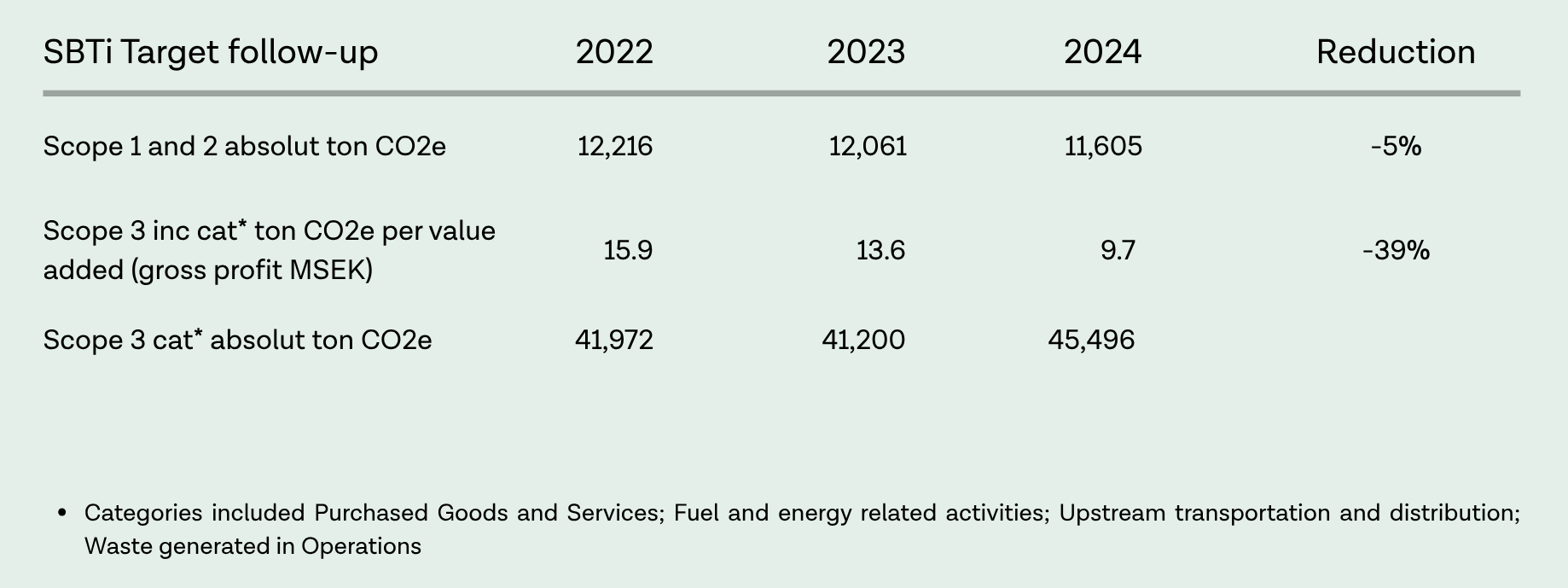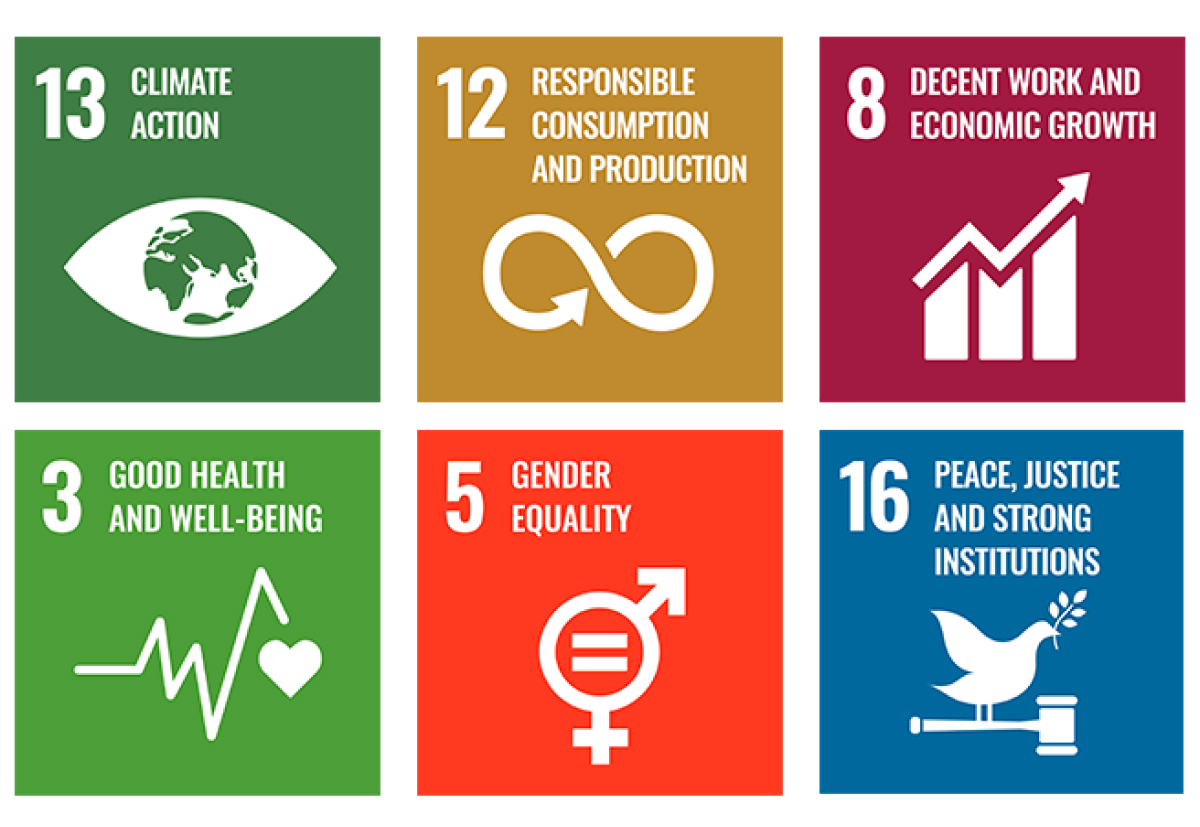
Sustainability within Cary Group
Our focus areas are Climate, Circular Offering, Empowering People and Business Ethics
Environmental
Measure
Thorough and well performed measurements and collection of data in accordance with the GHG protocol corporate standard – the whole value chain included.
Reduce
Reduction targets in line with criterias for Science Based Targets Initiative and the 1.5ºC Paris Agreement, including a reduction plan.
Invest
For our emissions Cary Group has taken the decision to implement Internal Carbon Pricing (ICP) to accelerate our decarbonisation journey.

Measure
Science Based Targets initiative
Cary Group is aligning its targets with the Science Based Targets initiative (SBTi) and the Paris Agreement, as part of its sustainable strategy. This involves integrating sustainability into its customer offerings, including digital solutions, convenient locations, fossil-free courtesy cars, and efforts to increase repair rates and recycle windscreens to reduce CO2e emissions. Cary Group has committed to reduce CO2e emissions from scope 1 & 2 by 42% in line with the Science Based Target initative’s (SBTi) 1.5°C scenario. For Scope 3 emissions should be reduced in relation to gross profit by 52% by 2030, compared to the base year 2022.
The Greenhouse Gas protocol’s categories included in the Scope 3 target are Purchased goods and services; Fuel and energy related activities; Upstream transportation and distribution; waste generated in operations. The targets were verified in March 2024.


Reduce
Resource Management and Circularity
Glass, a key raw material sourced from finite resources like sand and lime, is heavily utilized in our workshops. We strive to minimize glass consumption by reducing waste and recycling replaced windscreens. Cary Group partners with specialized waste operators to ensure proper handling and recycling of windscreens, contributing to the manufacturing of fiberglass and other glass products like bottles.

Invest
Internal Carbon Pricing
Internal carbon pricing (ICP) is a tool where an internal price is set on emissions and Cary Group uses ICP to incentivize carbon reduction, manage climate related business risk and finance decarbonization actions.
Thanks to the ICP-funding Cary Group has several carbon reduction projects planned for in 2025 across our subsidiaries, including for example piloting of a new repair technology, installation of solar panels, new charging infrastructure, and LED lights.
Circular Offering

Main iniatives
Lead in Waste Management: We advocate for the optimal waste hierarchy, emphasizing prevention, reuse, and recycling to minimize environmental impact including no pollution to air, soil and water.
Empowering People

Main initiatives
Elevate Safety Awareness: We’re committed to fostering a work environment with heightened accident reporting and safety consciousness.
Focus on Diversity and Inclusion: We actively take measure to increase diversity, equality and inclusion.
Business Ethics

Main initiatives
Integrate Sustainability: Our financial targets (sustainability-linked loans) and short-term incentives are closely linked to our sustainability commitments.

A sustainable supply chain
Our policies
Below you can read our Modern Slavery Statement and our Code of Conduct:

Whistleblowing

UN Sustainable Development Goals

Sustainability Report
Sustainability Report 2024 (PDF)
Sustainability Report 2023 (PDF)
Sustainability Report 2022 (PDF)

